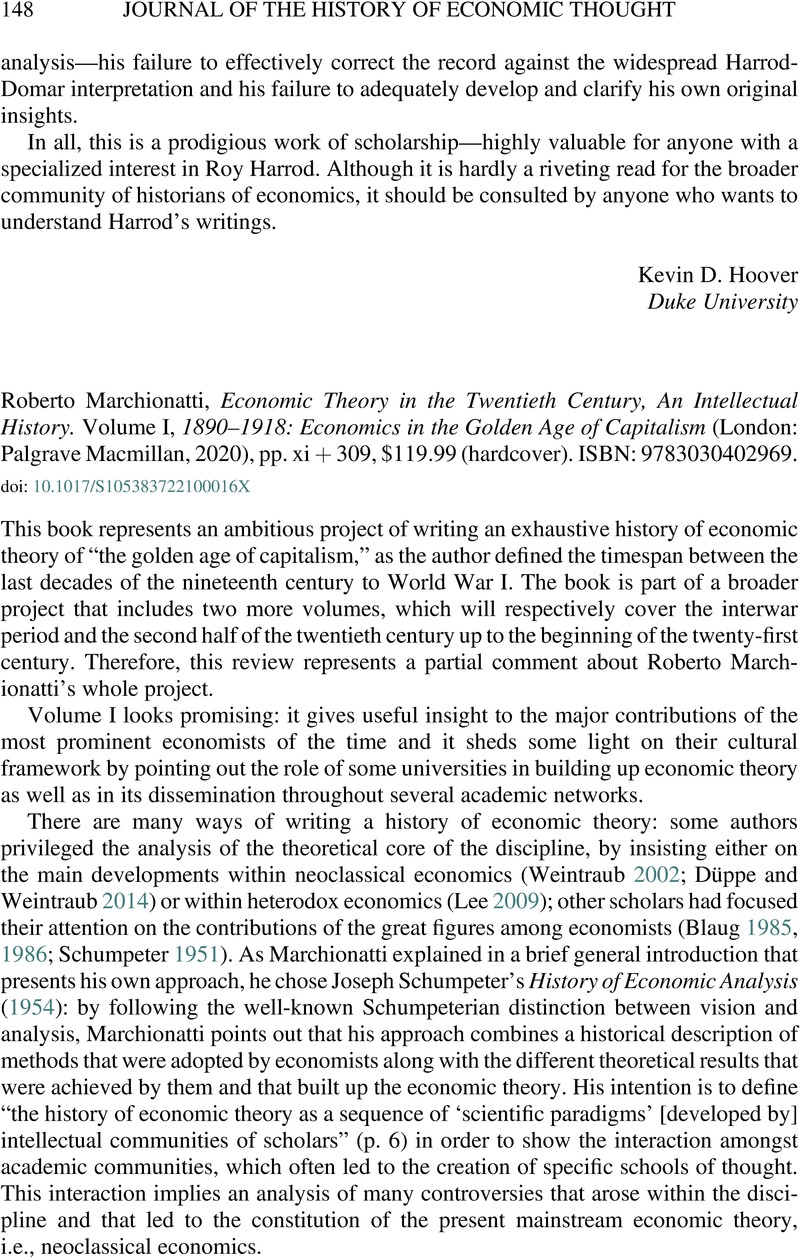Crossref Citations
This article has been cited by the following publications. This list is generated based on data provided by Crossref.
Becchio, Giandomenica
2023.
Roberto Marchionatti, Economic Theory in the Twentieth Century, An Intellectual History. Volume II, 1919–1945: Economic Theory in an Age of Crisis and Uncertainty (London: Palgrave Macmillan, 2021), pp. xiii + 428, $149.99 (hardcover). ISBN: 9783030809867..
Journal of the History of Economic Thought,
Vol. 45,
Issue. 1,
p.
172.





